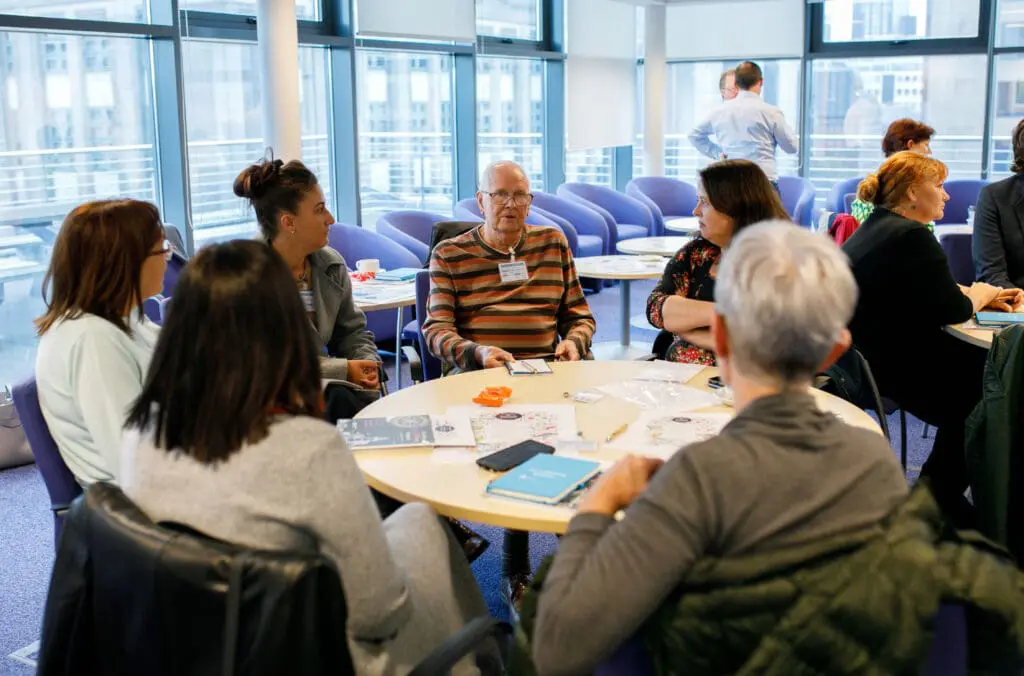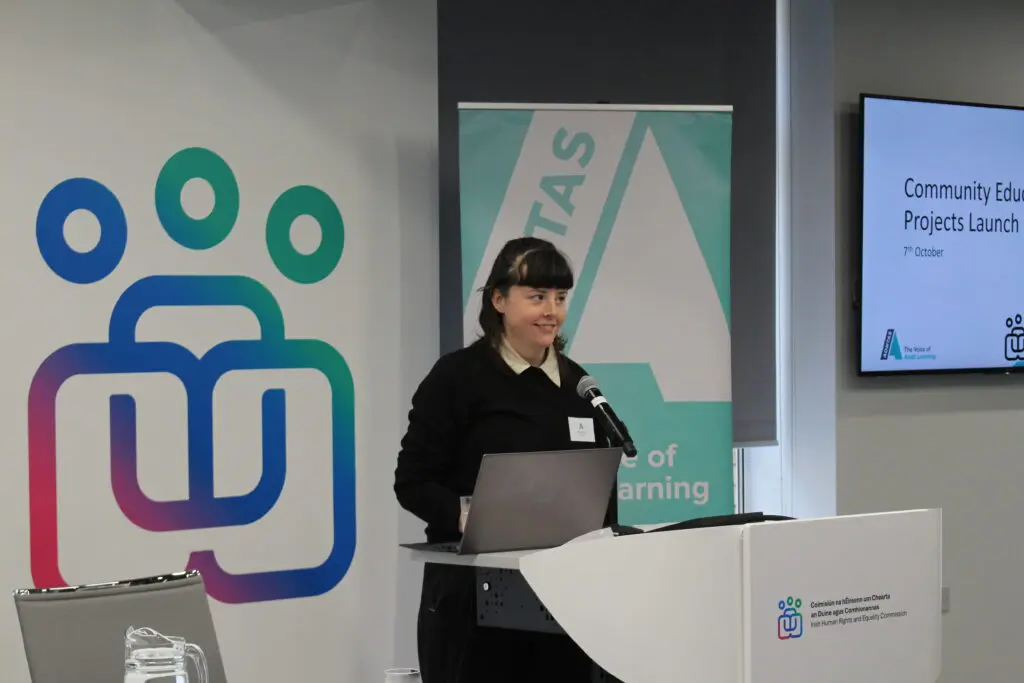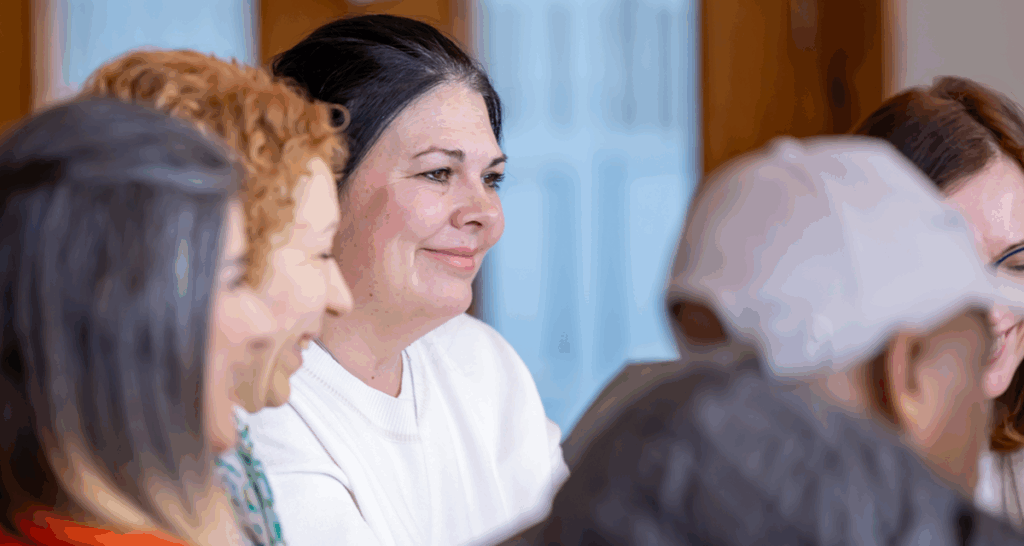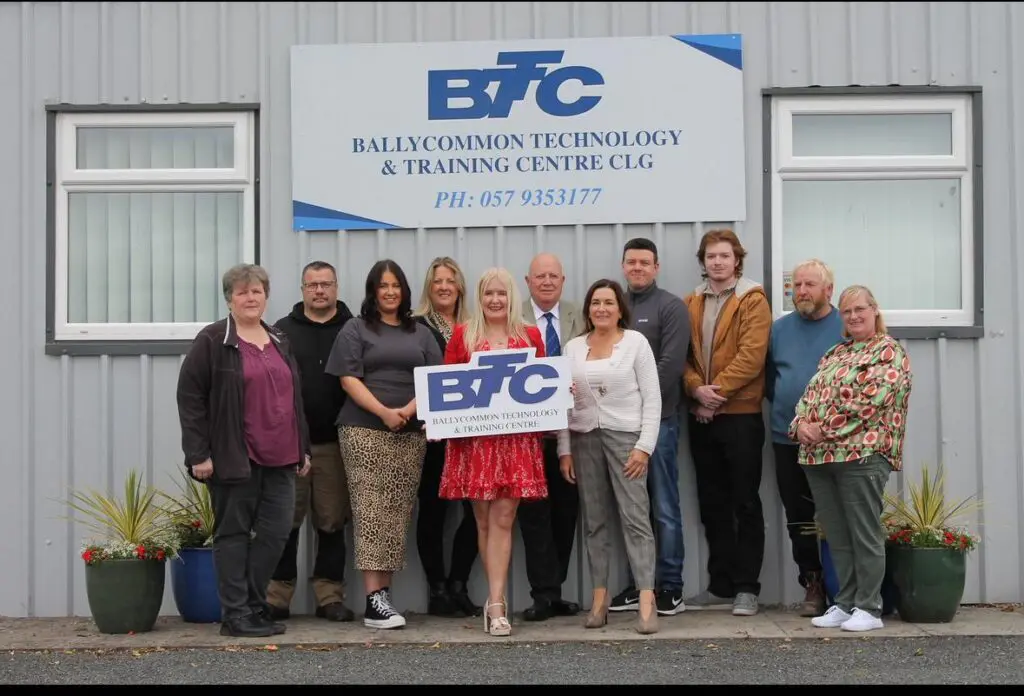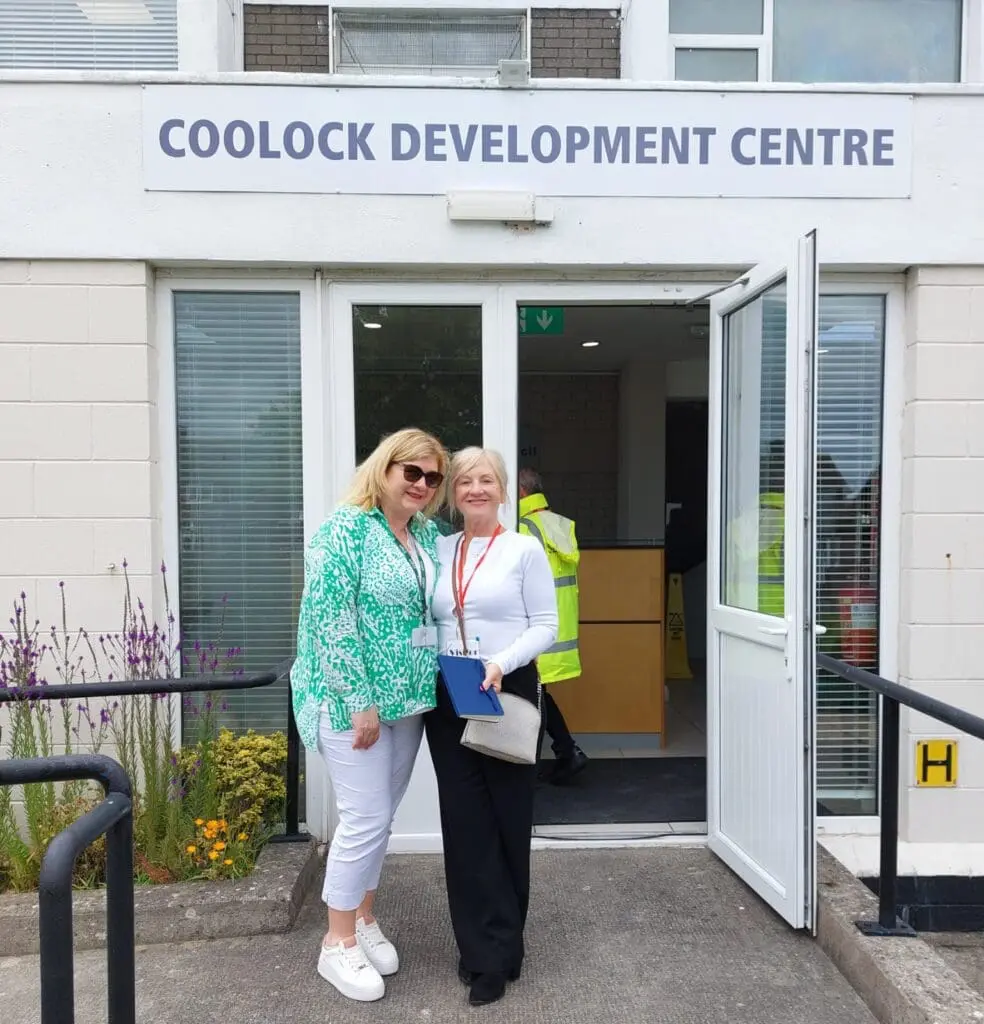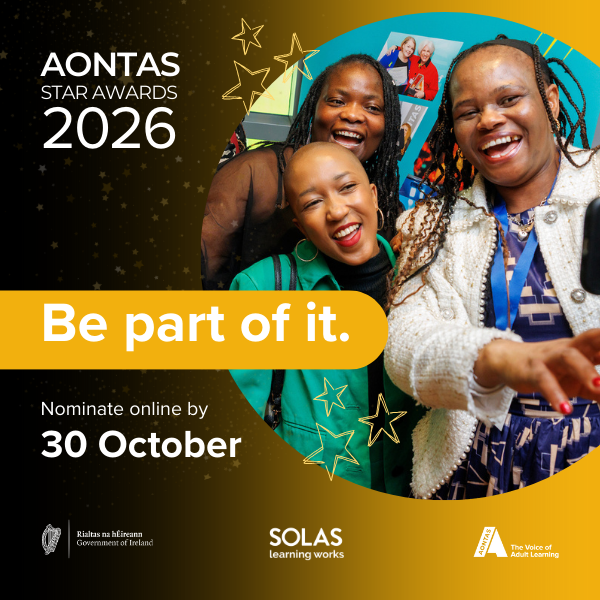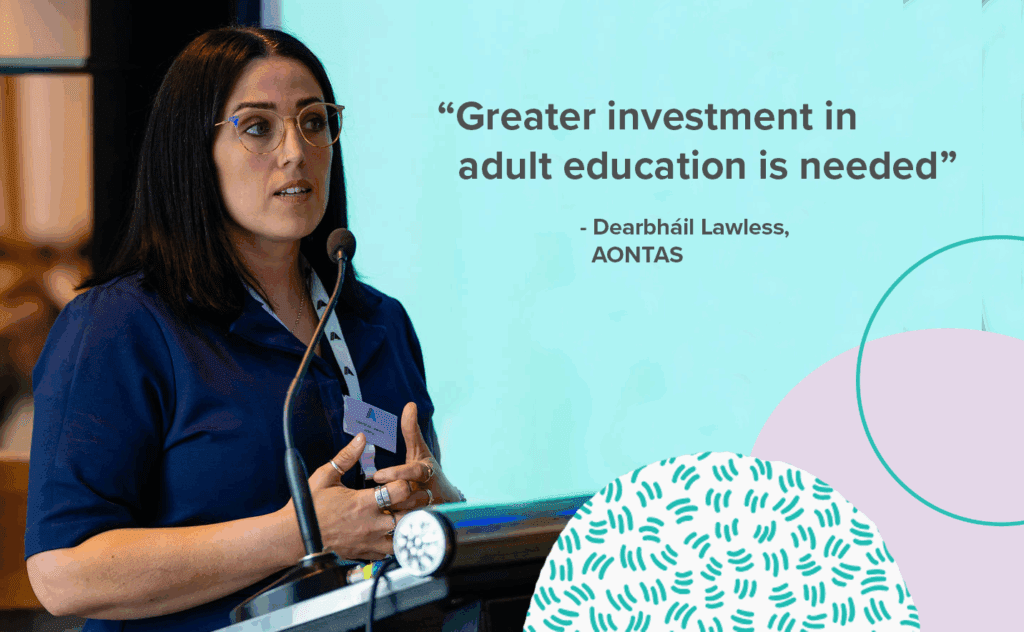The collective aim is to strengthen advocacy work in collaboration with these organisations in Northern Ireland, and to support providers in need of more funding and resources to get recognition for the important work they do.
What’s Happened So Far: Collective Strength and Knowledge Sharing
To date, AONTAS has held two online Consortium meetings to open up discussions, identify key issues that are important to people, and to share ideas.
In September 2022, we held a free event in the Open University offices in Belfast, open to all community organisations who offer learning opportunities.
This event gathered together tutors, managers and co-ordinators from organisations large and small, new and well-established, from across Northern Ireland. In discussions on the day, the most frequently-mentioned challenges were access to funding, and recognition of the high-quality work groups are doing.
“We are considered ‘third sector’, and that sometimes feels like we are considered ‘third citizens’,” according to one attendee.
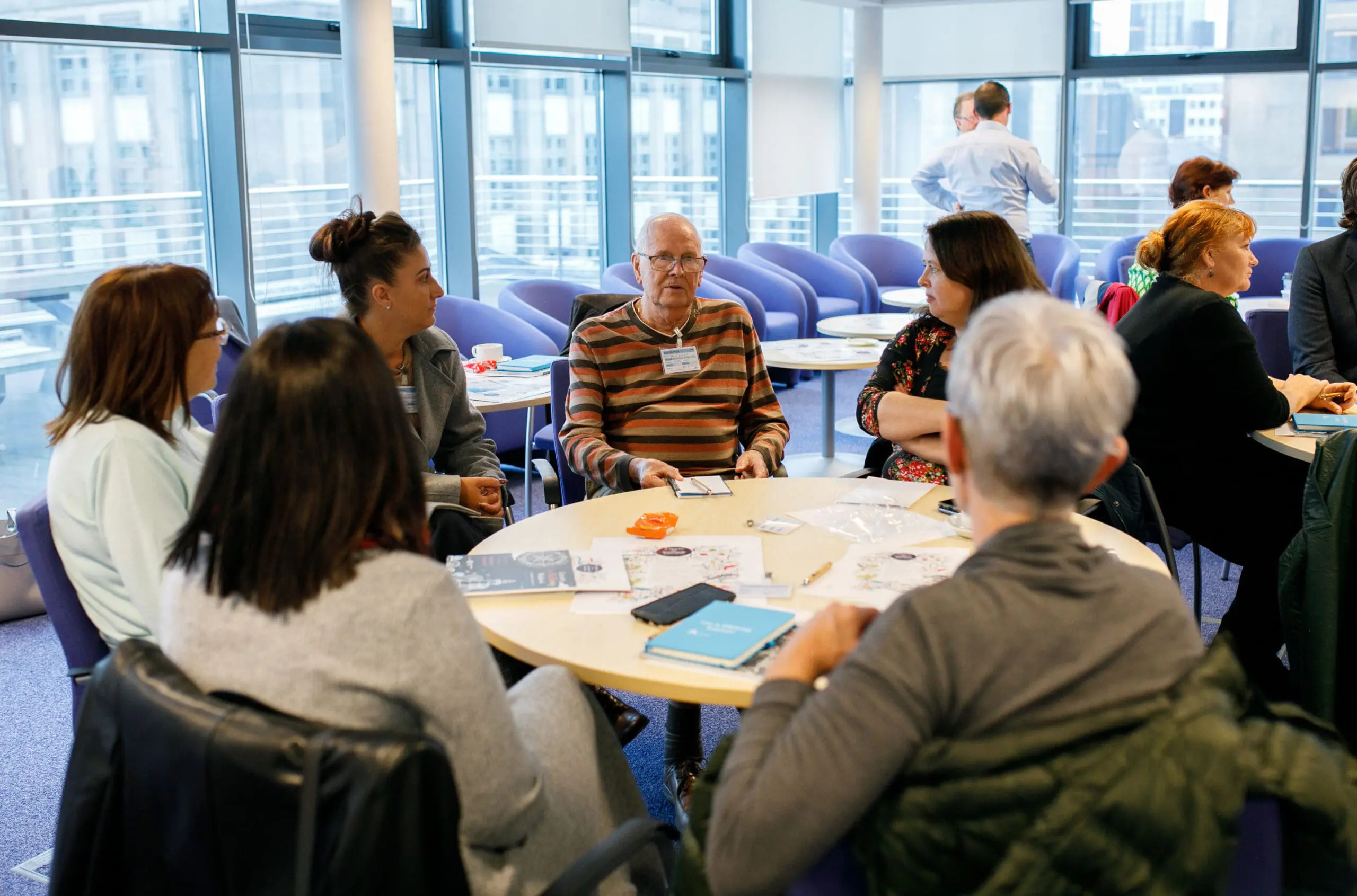 But the shared strength of community groups is in their direct connection with what’s happening in people’s lives. They are responsive and they are part of their communities. This makes communities better, and contributes not just to things like economics and employment, but to people’s sense of wellbeing, safety, security, and happiness. This must be recognised at policy level.
But the shared strength of community groups is in their direct connection with what’s happening in people’s lives. They are responsive and they are part of their communities. This makes communities better, and contributes not just to things like economics and employment, but to people’s sense of wellbeing, safety, security, and happiness. This must be recognised at policy level.
What’s the Goal?: A Stronger Community Education Sector in Northern Ireland
One of the primary goals of the project is to carry out an “AONTAS NI Community Education Census”, similar to the Community Education Network (CEN) Census conducted by AONTAS in the Republic for 2020.
Similar to a national census, this will take the form of a survey that will be sent to all identified community education groups and organisations in Northern Ireland. Everyone is asked to share information on their work highlighting the range and scope of community education provision, and addressing some central challenges facing providers.
The AONTAS NI Community Education Census is being conducted with AONTAS, led by our Senior Research Officer Dr Eve Cobain in collaboration with Colin Neilands, a long-time advocate for adult learning in Northern Ireland.
“The more groups we can encourage to take part,” Colin says, “the better the base for our advocacy.”
Using the CEN Census as a model, AONTAS will gather and analyse the information shared by community groups in Northern Ireland.
The CEN Census in the Republic sought to establish a “real and true picture of community education,” according to Tara Farrell, CEO of community education group Longford Women’s Link. Working alongside community education groups in Northern Ireland, AONTAS will work to achieve a similar result.
What’s the Background? The Community Education Network Census 2020
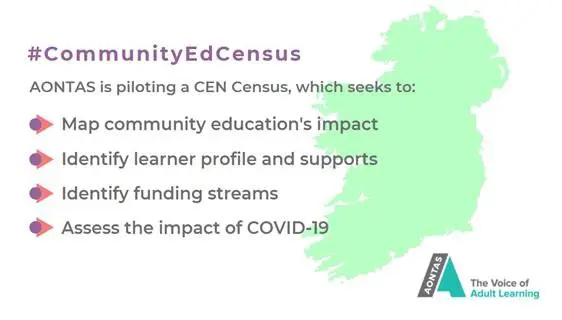 The Community Education Network was set up by AONTAS in 2007, to offer a space for community education organisations and practitioners to come together, share information and develop a stronger sense of solidarity and collective voice.
The Community Education Network was set up by AONTAS in 2007, to offer a space for community education organisations and practitioners to come together, share information and develop a stronger sense of solidarity and collective voice.
Completed in 2020, the CEN Census examined the status and impact of community education across the Republic. Findings from the report illustrate the sector’s commitment to engaging with learners who are more vulnerable and experiencing more disadvantage.
Many community education organisations were providing vital wraparound supports (such as childcare and wellbeing), while over one third of the respondents to the CEN Census developed new courses in response to the COVID-19 pandemic, particularly on health and wellbeing and technology support.
While community education providers demonstrated hard work and expertise when helping people experiencing disadvantage, more resources continue to be needed, such as staffing and infrastructural costs.
Gathering information and concrete data on this is critical in making recommendations for change, and advocating for funding and resources with Government and policymakers.
For instance, in the Republic AONTAS used the findings of the CEN Census to advocate for the Mitigating Against Educational Disadvantage (MAED) Fund, which has now become the REACH Fund and supports community education groups.
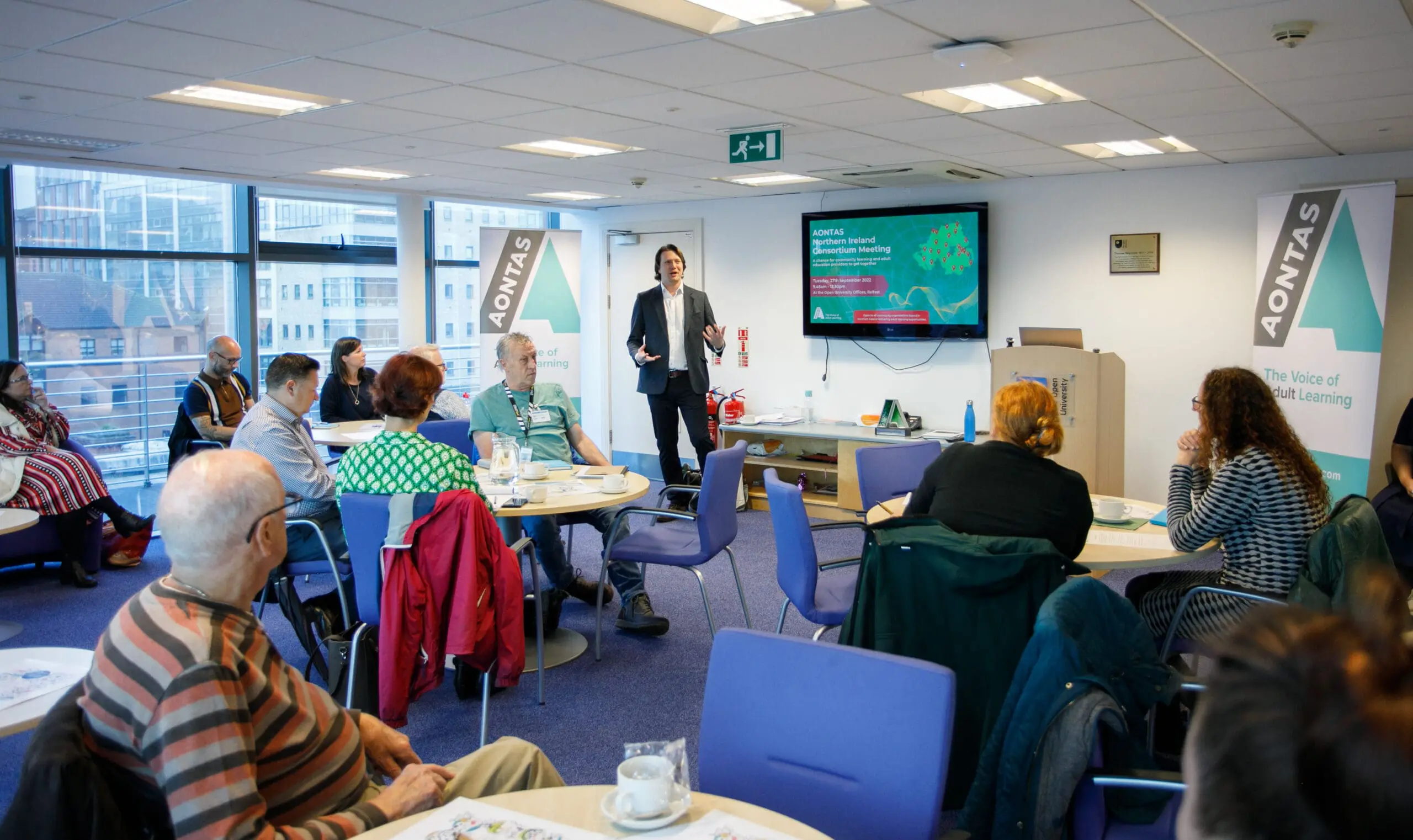
The fund was announced by Minister Simon Harris TD from the Department of Further and Higher Education, Research, Innovation and Science in the Republic of Ireland as a “regular feature of our education system”.
The fund is not perfect, but it is a resource and source of financial support for groups as a direct result of our collective work with the Community Education Network and policymakers in the Republic.
By gathering evidence of what makes adult and community education effective in Northern Ireland, we can work together to highlight what is needed for organisations both North and South, including stable, sustainable funding and a recognition of the broader impact of community learning on learners’ health and wellbeing.
Building Alliances
Developing strong relationships and solidarity, and gathering concrete evidence of the sector’s needs can help in building a structure for collective advocacy. This means that the sector could have a stronger voice with policymakers and funders.
The community education and learning sector often faces a great deal of pressure and stress. A collective approach is needed to build evidence about the ongoing positive impact of the sector for communities across the island of Ireland.
Coming Up
We are holding another Consortium meeting on 26th January 2023 in Derry. Click here to find out more about this event.
To learn more or get involved with this work, contact Dr Eve Cobain at ecobain@aontas.com
